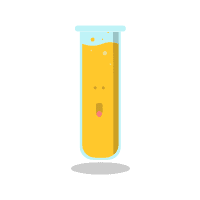
NCSCOS Grade 6 Earth Science - 6.E.1 - Diagnostic Earth in the Universe
Quiz by NCDPI
Grade 6
Science
North Carolina Standard Course of Study
Feel free to use or edit a copy
includes Teacher and Student dashboards
Measures 3 skills from
Measures 3 skills from
With a free account, teachers can
- edit the questions
- save a copy for later
- start a class game
- automatically assign follow-up activities based on students’ scores
- assign as homework
- share a link with colleagues
- print as a bubble sheet
10 questions
Show answers
- Q1Looking through his telescope, Galileo observed that Jupiter had a set of moons, much like Earth does. The moons revolved around the planet. This disproved the idea that all objects in space revolved around Earth. This means thatscientific knowledge can be revised if better evidence comes to light.scientific knowledge is almost always incorrect.scientific knowledge began only after the telescope was invented.scientific knowledge can only be gained by using sophisticated instruments.30s6..E.1.1
- Q2What effect does this arrangement have on the tidal range?The tide is larger than normal because the gravitational forces of the sun and moon pull in the same directionThe tide is smaller than normal because the gravitational forces of the sun and moon pull in opposite directions.The tide is larger than normal because the gravitational forces of the sun and moon pull in opposite directionsThe tide is smaller than normal because the gravitational forces of the sun and moon pull in the same direction.30s6..E.1.1
- Q3What causes the summer to be the warmest season?The Earth’s tilt causes the longest days with the most intense sunlight.The Earth’s tilt causes the shortest days with the least intense sunlight.The Earth’s tilt causes the longest days with the least intense sunlight.The Earth’s tilt causes the shortest days with the most intense sunlight.30s6..E.1.1
- Q4This is a ___________ gibbous moon.crescentwaningwaxingnew30s6..E.1.1
- Q5Why is the distance between Earth and the sun most important?The distance is the source of Earth’s magnetic field.The distance causes the different seasons on Earth.The distance prevents solar flares from reaching Earth’s atmosphereThe distance contributes to Earth’s ability to support life30s6.E.1.2
- Q6What is one reason why life probably does not exist on Jupiter, Saturn, Uranus, and Neptune?They have no gravity.They are the gas planets.They are the rocky planets.They are the giant planets.30s6.E.1.2
- Q7The Earth is the only planet in our solar system that seems capable of supporting life as we know it. Which of these characteristics is NOT necessary if a planet were to support life?source of fresh waterable to receive sunlightsmall changes in temperatureextreme global warming30s6.E.1.2
- Q8If Earth was smaller like Mercury- its gravity would be too weak to hold a large atmosphere. What is the best explanation for Earth's ability to have an atmosphere?The weight of Earth makes the gravitational force weaker. This enables Earth to have an atmosphere that is too light.The mass of Earth makes the gravitational force stronger. This enables Earth to have an atmosphere that is dense enough to exist.The weight of Earth makes the gravitational force stronger. This enables Earth to have an atmosphere that is dense enough to exist.The mass of Earth makes the gravitational force weaker.30s6.E.1.2
- Q9What is the BEST way to discover if there is water on the surface of Mars?Study the moon’s surface, since it is similar to that of MarsStudy meteorites on Earth, believed to have been rocks from MarsObserve the color of Mars to see if there are traces of blueSend space probes to Mars to study the surface30s6.E.1.3
- Q10In the early 1600's, Galileo modified the lenses used in a scientific tool. After doing this, he was able to use it and see, for the first time, some of the moons of Jupiter. The device Galileo used was ahubble.telescope.microscope.bifocal.30s6.E.1.3